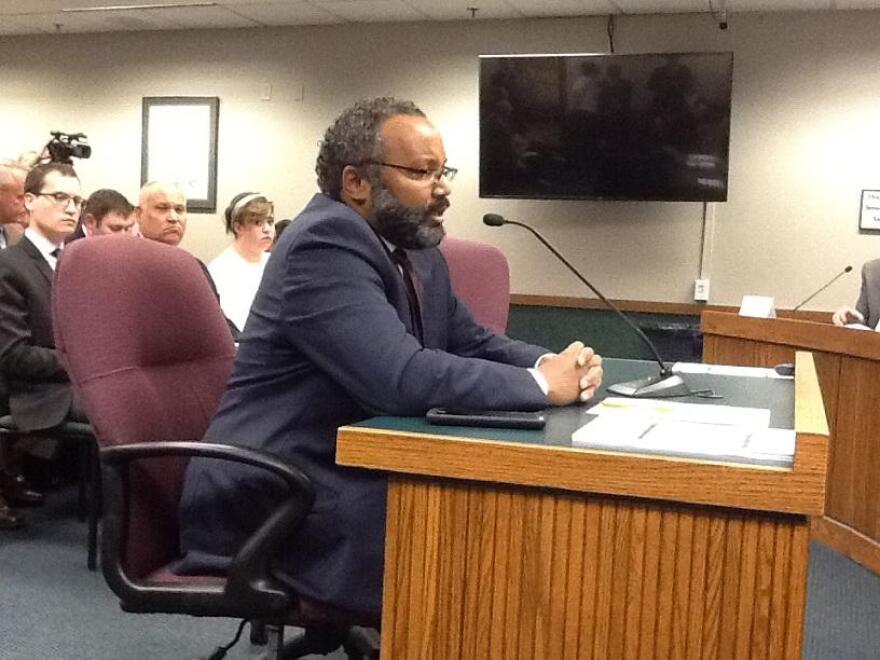Michelle Tyrene Johnson scrolls back to a Facebook post she made in July with news about the national NAACP supporting a travel advisory in a single state for the first time.
“My comment with this is: ‘I have always had the policy that I don't travel in Missouri at night unless I'm on I-70 because parts of the state are just that openly racist,’” she says
Johnson, a Kansas City playwright and diversity consultant, says comments from her black friends agree with her Facebook post and they mention similar travel cautions. But comments from Johnson’s white friends are very different.
“White people are going with this travel advisory, ‘Oh my god, this still happens?!’ Black people are going, ‘Why is the travel advisory just in Missouri? And why just now?’” Johnson says.
The Missouri NAACP issued the travel advisory this spring after passage of a state law that makes discrimination lawsuits harder to win, including exempting state employees from whistleblower laws and limiting monetary damages. Proponents of the bill, including Gov. Eric Greitens, who signed it, said the law was needed to combat “frivolous lawsuits” that hurt businesses.

Rod Chapel, president of the state NAACP chapter, says he issued the travel advisory out of desperation over the bill and many other problems. He cites racial incidents at the University of Missouri, a state report that says black drivers are 75 percent more likely to get pulled over than white drivers, and the death of an African American man in a jail in a small county in southeastern Missouri.
Chapel says he’s also just tired of getting stopped while driving.
“It was just kinda, are we safe?,” Chapel says. “I might as well be in Beirut some days.”
The travel industry in Missouri has been slow to react and appears to be treadling lightly on a sensitive subject. Chuck Martin of the Missouri Travel Council says his group supports diversity in all 50 states and feels unfairly singled out.
“Instilling fear and discouraging people of color from traveling only to Missouri, directly and negatively impacts people who make their livelihoods working in our travel and tourism industry,” he says.
Kitty Ratcliffe, president of Explore St. Louis, issued a statement saying her group supports equal rights, but that she is discouraged because the travel industry is “being used as a weapon against politicians for their policies.”
“Ultimately, it is not the politicians who suffer from these actions, but it is the hard working men and women of our state’s hospitality industry that will bear the impact and outcome,” Ratcliffe says.
The travel advisory appears to be a new tactic in social justice movements, says Pamela Oliver, a sociology professor at the University of Wisconsin-Madison. In May, the ACLU issued a travel advisory for Texas and tourism boycotts have been used before. But this advisory combines two tactics that have been successful in the past.
“It seems like it’s a new way to call for a tourism boycott but in a way that frames the reasoning for it in a different way,” Oliver says. “It does evoke, at least in my mind, the State Department-type warnings that this is a dangerous place for you to go.”
Some wondered whether the advisory offered the nation’s oldest black civil rights group increased attention and relevance during a time that the “Black Lives Matter” movement is front and center. But Oliver says publicity is an inherent part of the tactic.
“How social movement tactics work is through media coverage,” she says. “That’s the point.”
Michelle Tyrene Johnson just had her new play read at the National Black Theatre in New York. It was inspired by “The Green Book,” an annual guide that reported to African-American travelers safe places to stay and eat during the Jim Crow era.
“So here’s the difference between now and the time of the Green Book,” Johnson says. “Yes, legally I can go to any hotel in the state of Missouri that I want to stay in but that doesn't mean I'm going to feel comfortable or even be safe.”
Johnson’s play is set to be read again at the Johnson County Arts and Heritage Center on September 16. A few days later, the Missouri NAACP meets in Springfield to discuss its next move. The national NAACP will consider whether to formally ratify the advisory in October.
Peggy Lowe is KCUR's investigations editor. She's on Twitter at @peggyllowe.




